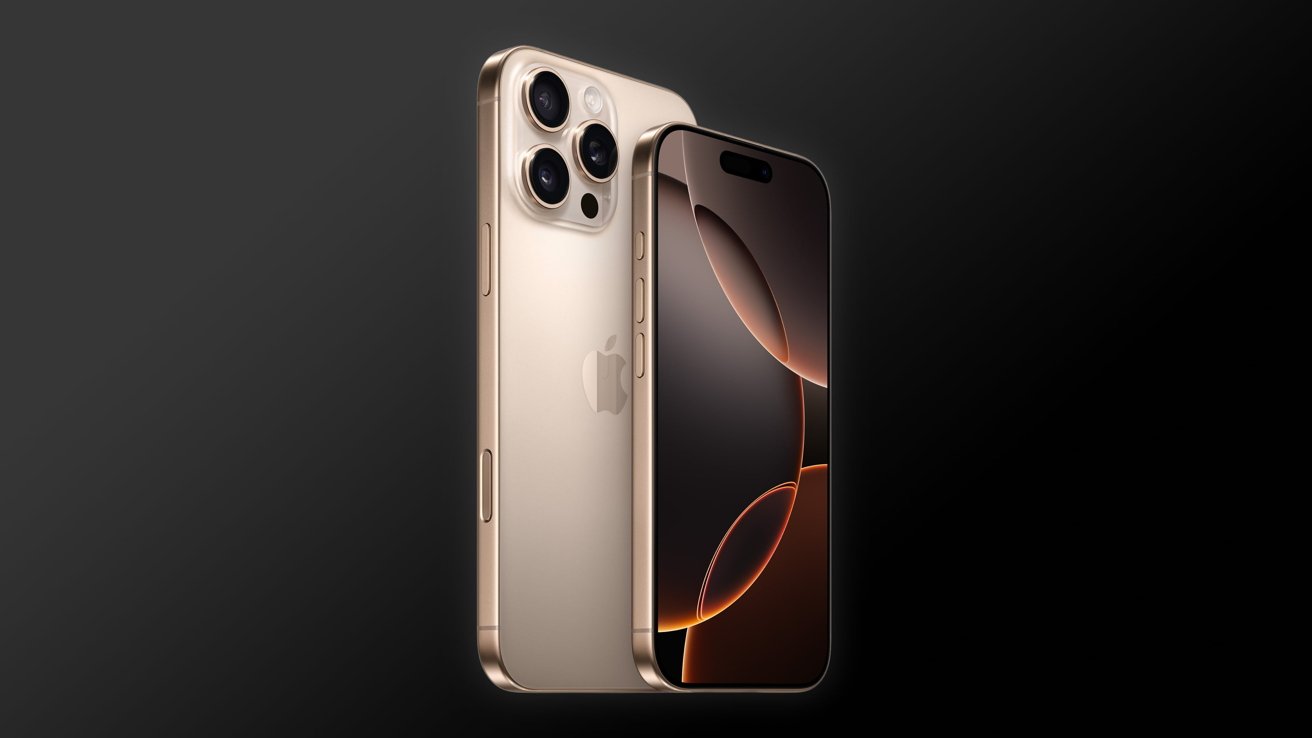A survey of lead times has led investment bank Morgan Stanley to claim that iPhone 16 orders are lower than for its predecessors.

The new larger iPhone 16 Pro and Pro Max
The iPhone 16 and iPhone 16 Plus may have sold 37 million in their first weekend, and Russians are ordering more despite that country facing much higher prices on iPhones. In a message to investors that has been seen by AppleInsider, Morgan Stanley says that its surveys show iPhone 16 demand is lower than before.
Specifically, on average, those lead times (compared to 2023's ) are:
- iPhone 16 Pro Max 25.5 days (instead of 43.5 days)
- iPhone 16 Pro 18.5 (instead of 32.5)
- iPhone 16 9 (instead of 14)
- iPhone 16 Plus 7.9 (instead of 13.9)
"When we aggregate all of our iPhone lead time data," says Morgan Stanley, "average iPhone 16 lead times from pre-order to today stands at 14 days, shortest amongst all cycles in the last 5 years and roughly in-line with the iPhone 12 cycle."
Morgan Stanley does conclude that it believes we are more than 50% likely to see Apple cut its supply orders. However, the analysts also maintain that lead times early on in a product's lifespan "still have very limited predictive power."
Lead times are always dependent on how much stock Apple has -- and Apple never reveals this figure. So it's possible that Apple has actually done a better job at manufacturing sufficient iPhones for the demand it has.
Comparing lead times for the iPhone 16 range and older. (Source: Morgan Stanley)
However, there are practical limits to manufacturing and on Apple's schedule. While it cannot ever be conclusive, it's at least partially reasonable to compare any one year's iPhone to previous ones.
Consequently, comparing the iPhone 16 range to earlier years, the iPhone 16 Pro Max has a lead time 14 days shorter than the iPhone 14 Pro Max, and 7 days shorter than the iPhone 13 Pro Max. The iPhone 16 Pro's lead times are 14 days shorter than the iPhone 15 Pro, iPhone 14 Pro, and iPhone 13 Pro.
Separately, Morgan Stanley reports that initially users appear to be upgrading because of having old phones, or looking for the improved battery life and camera systems of the new models. They are not, so far, buying because of Apple Intelligence -- though Morgan Stanley recognizes that only a few people surveyed will have been using the beta version of iOS 18 with that.